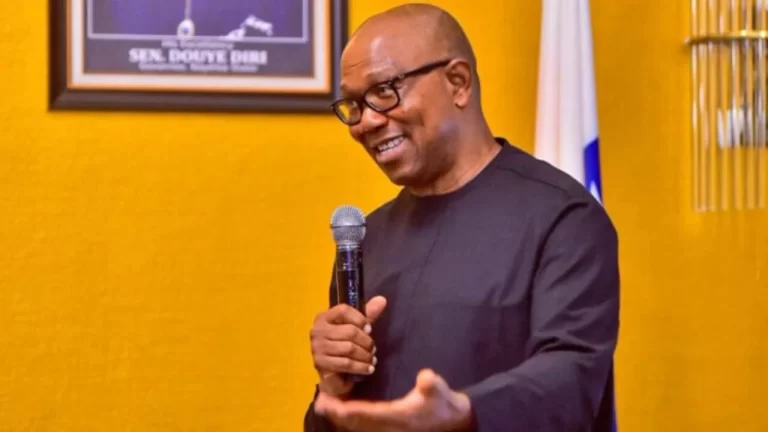The presidential candidate of the Labour Party at the 2023 General Election, Peter Obi, has tackled the Federal Government over the Lagos-Calabar coastal highway project, saying it might add up to the numerous uncompleted projects not contributing to the economic growth and development of the nation.
Obi, who expressed his concern in a statement via his verified X handle on Monday, said there is a pressing issue of numerous uncompleted roads scattered across the country, many of which, according to him, have become hazardous death traps and security risks.
He maintained that embarking on another huge project that will not be completed in the next 20 or 30 years will only worsen the problem of abandoned, uncompleted projects that are not contributing to economic growth and overall development.
The former Anambra State governor suggested that given the state of the nation’s economy, prioritisation and fiscal discipline should be the critical guiding principles, insisting that the project will worsen the already sagging debt burden.

He stated further that most of the uncompleted roads have been under construction for several years and are unlikely to be completed any time soon due to poor and unplanned funding.
Obi wrote, “I have closely followed the comments and developments arising from the coastal (Lagos-Calabar) Super highway Project.
“While I’m hesitant to engage in contentious debates about its benefits, which I acknowledge, and the pricing, which I have serious concerns about, and believe should be thoroughly reviewed, I am compelled to raise essential questions about the timing and prioritisation of such a monumental venture.
“At the forefront of my concerns is the pressing issue of numerous uncompleted roads scattered across the country, many of which have become hazardous death traps and security risks.
“It is disheartening to witness the plight of innocent Nigerians who traverse these dilapidated roads under perilous conditions, vulnerable to kidnappers and other dangers.
“Most of these roads, vital for economic growth, regional connectivity, and overall development, have been under construction for several years if not decades now and are unlikely to be completed any time soon due to poor and unplanned funding.
“The Federal Ministry of Works 2024 capital budget of N892,461,262,656.00, additional funding from multilateral loan projects of N94,828,535,243.00, alongside other expected contributions from sources like the China-Exim Bank and the World Bank, will not be enough for serious work on all the critical roads, some of which I enumerated above, let alone their completion.
“So, why embark on another huge project that will not be completed in the next 20 or 30 years? To do so will only exacerbate the problem of abandoned, uncompleted projects that are not contributing to economic growth and overall development.
“It will merely worsen our already sagging debt burden. Given the state of our economy now, prioritisation and fiscal discipline should be our critical guiding principles now.
“Therefore, while acknowledging the potential benefits of coastal superhighway infrastructure, I urge prioritisation of our existing uncompleted projects.
Also Read:
- Nigerian pastor jailed in South Africa eight years ago for rape acquitted
- Solution FC end Lobi Stars Federation Cup journey in Aba
- Ex-NYSC DG Tsiga regains freedom from abductors
- Reactions trail Edo State governorship tribunal judgement
- In “Uncaged”, drug addiction takes away what it promises to give you, by Michael Olatunbosun
“We must allocate resources towards repairing and completing existing infrastructure, crucial for the well-being and safety of our society, before embarking on new projects, no matter their perceived benefits.
“Let’s prioritise the urgent needs of our people and ensure that our investments serve the collective good of the nation.
“In any development formula, the primary focus should be on completing and rehabilitating existing infrastructure rather than embarking on colossal new projects that may never reach completion within the next 30 years.”


